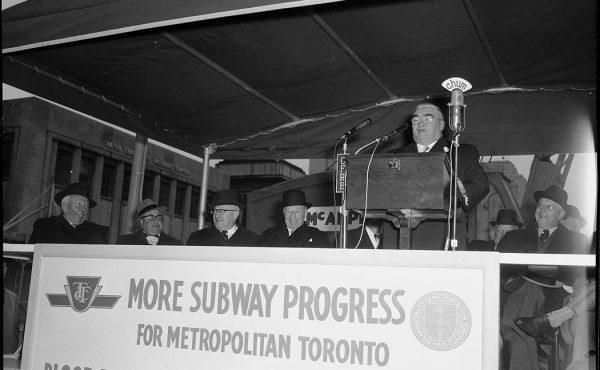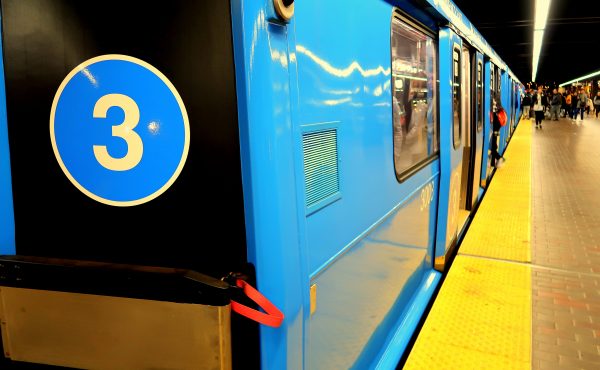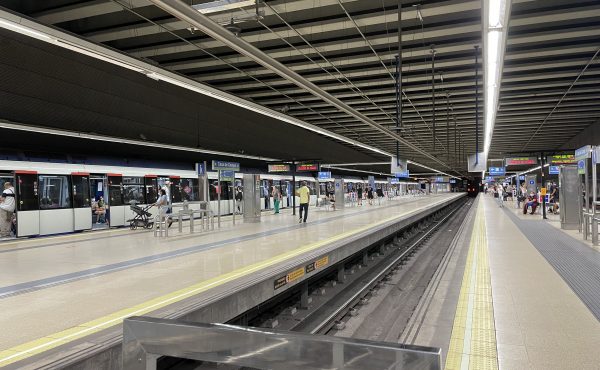
Earlier today, the Toronto Transit Commission held a special meeting to decide a course of action with regards to the recent budget directives.
The 17,000 responses to the TTC’s simple survey (approved at the last special meeting in August) which was handed out and posted throughout the system showed that the ridership (at least those who bothered to respond) prefer paying more taxes than paying higher fares or service cuts to solve the TTC’s budgetary woes. Over half — 54 percent — support higher taxes, while 45 percent would accept a fare increase, and only 27 percent for service cuts.
The Commission decided to do just that. A fare hike will commence November 4. While cash fares remain at $2.75, tokens and adult tickets will rise 15 cents to $2.25 each, senior/student tickets up 10 cents to $1.50 each, and adult Metropasses will go up by a steep $9.25 to $109.00 ($100 if you opt for the annual Metropass plan). A full schedule of the new fares is available here [PDF document]. The good news: there will be no service cuts, and hopefully, service improvements in the New Year to deal with overcrowding and to improve service standards.
The TTC is banking on Council passing the deferred vehicle registration and land transfer taxes to make up the remaining gap and to allow it to implement the oft-delayed service improvements in February, including the opening of the new Mount Dennis Garage. With the opening of the new garage, buses will be re-assigned, more routes will be designated accessible for wheelchairs and more routes will get buses with bicycle racks. Eventually, all routes will be brought up to a basic standard — buses running a minimum of every 20 minutes, and on full service hours.
This last part is essential; it shows that the TTC is already looking ahead to the near future and some of the optimism that was evident in the first half of 2007 (service improvements, Transit City, new streetcars, and the MoveOntario announcements) may soon return.
Fare increases are very unfortunate, as they have been rising far faster than the rate of inflation [PDF link] and hurt the working poor the most. The Metropass, for example, is one of the most expensive local transit passes in North America. It can be also be argued that service cuts hurt even more, particularly when buses are not running at certain times of day, or at all on certain routes. A lower fare means little if one can not even get on the bus.
The TTC Commissioners made the best of a bad situation, and will soon be in a position to respond to overcrowding and poor service levels throughout the city. In the meantime, the ball is in Council’s court.
As always, Steve Munro offers more insight and analysis in two recent posts:
TTC Decisions: The Sky Has Not Fallen (1)
TTC Decisions: The Sky Has Not Fallen (2)




10 comments
In fact, fares haven’t been rising far faster than the rate of inflation. They did jump quite significantly in the mid-1990s; since then, fares have been hovering around $1.90 or so for tickets, and $100 for a Metropass (both in 2004 dollars). The fares announced today amount to $102.19 for a Metropass, and $2.11 for tickets. It’s a rise, to be sure, but it’s also well in line with historical precedent (compare the trend lines in the 1960s or 1980s), and nowhere near what we went through in the 1990s.
Maybe the increased fares will solve the overcrowding problem.
Is there an overcrowding problem? Whenever I ride the TTC it is always empty.
I suspect that even a hike of $1 per token would not reduce the overcrowding. TTC provides a very, very valuable service to a great many people.
I’m glad they are staying the hell away from service cuts, because the value of the service derives from the size and flexibility of the network.
Yeah, the TTC is still a bargain by far. Compare it to the cost of buying or leasing a car, insuring it, buying gas for it, conducting regular maintenenance on it and paying for parking. The cost of gas alone for a car would be about the same, if not more, than the cost of a metropass on a yearly basis!
Is there an overcrowding problem? Whenever I ride the TTC it is always empty.
You’re kidding, right?
If we follow Luke’s ‘logic’, if we have a car crowding problem, we should actually start to charge them for being around in the first place.
We should look around a bit more and ask why we are building subways to sprawl and highways in the core.
There are a couple hundred million bucks in savings in waterfront transport projects, starting with looking at the c. 10 transit options to the Front St. Extension, and then seeing how much of the WWLRT is necessary.
Charge more and the Yonge line will still be full in rush hour while the Spadina line north of St Clair will still be empty. Subway ridership doesn’t appear to be very elastic.
If you want more density on the empty lines, develop Downsview with high density housing. Same for Sheppard. How much lawnspace do we need in front of all those condo buildings
mikeb> Downsview station was actually built in order to serve high density residential development that never really got off the ground
Steven> As I remember it, it was more of a sop from Peterson to Toronto as a “we’ll build to York and have a Sheppard West line eventually.” The base hadn’t closed and the Downsview development hadn’t been decided upon. My understanding is that now the plan is that around 20% of the lands will be sold off for development.